
Taroudant: The Hidden Gem of Morocco
Nestled in the heart of the Sous Valley, Taroudant is a charming city that offers a glimpse into Morocco's rich history and vibrant culture. Known as the 'Grandmother of Marrakech', Taroudant boasts well-preserved city walls and a tranquil ambiance that sets it apart from its more bustling counterparts. Stroll through the maze-like souks, where you can find a variety of local crafts, spices, and jewelry. The city's markets are less crowded than those in larger cities, providing a more relaxed shopping experience. Don't miss the chance to explore the Berber market, which is particularly lively on Sundays. Taroudant is also surrounded by stunning natural beauty. The nearby Atlas Mountains offer opportunities for hiking and outdoor adventures. A visit to the lush oasis of Tiout is a must, where you can ride donkeys and enjoy a traditional Moroccan meal under the shade of palm trees. The city's laid-back atmosphere and friendly locals make it an ideal destination for those seeking an authentic Moroccan experience. Whether you're wandering through the ancient medina or sipping mint tea in a local café, Taroudant promises a memorable journey into the heart of Morocco.
Local tips in Taroudant
- Visit the souks early in the morning to avoid the heat and crowds.
- Try the local dish, tagine, at a traditional restaurant for an authentic taste of Moroccan cuisine.
- Hire a local guide to explore the Atlas Mountains and learn about the area's history and natural beauty.
- Bring cash, as many local vendors do not accept credit cards.
- Wear comfortable shoes, as the cobblestone streets can be challenging to navigate.
Taroudant: The Hidden Gem of Morocco
Nestled in the heart of the Sous Valley, Taroudant is a charming city that offers a glimpse into Morocco's rich history and vibrant culture. Known as the 'Grandmother of Marrakech', Taroudant boasts well-preserved city walls and a tranquil ambiance that sets it apart from its more bustling counterparts. Stroll through the maze-like souks, where you can find a variety of local crafts, spices, and jewelry. The city's markets are less crowded than those in larger cities, providing a more relaxed shopping experience. Don't miss the chance to explore the Berber market, which is particularly lively on Sundays. Taroudant is also surrounded by stunning natural beauty. The nearby Atlas Mountains offer opportunities for hiking and outdoor adventures. A visit to the lush oasis of Tiout is a must, where you can ride donkeys and enjoy a traditional Moroccan meal under the shade of palm trees. The city's laid-back atmosphere and friendly locals make it an ideal destination for those seeking an authentic Moroccan experience. Whether you're wandering through the ancient medina or sipping mint tea in a local café, Taroudant promises a memorable journey into the heart of Morocco.
When is the best time to go to Taroudant?
Iconic landmarks you can’t miss
Dar Zitoune
Discover the charm of traditional Moroccan hospitality at Dar Zitoune, your serene escape in the heart of Taroudant.

Dar Tourkia
Discover a blend of tradition and comfort at Dar Tourkia in Taroudant, where Moroccan hospitality meets scenic beauty.

Palais Claudio Bravo
Discover the artistic legacy of Claudio Bravo at Palais Claudio Bravo, a captivating guest house and art museum in the heart of Agwidir, Morocco.
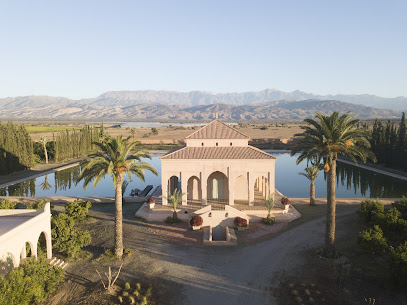
Bab Tarɣunt
Explore Bab Tarḥunt, a stunning historical gateway in Taroudant, Morocco, and immerse yourself in the region's rich culture and architectural beauty.
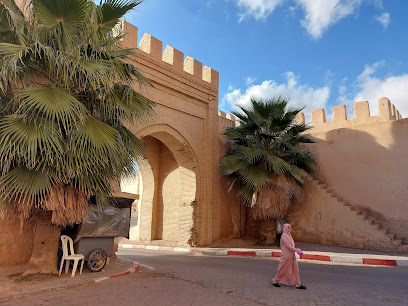
Grande marché de l'artisanat
Explore the Grande Marché de l'Artisanat in Taroudant, a vibrant market showcasing the best of Moroccan craftsmanship and local culture.
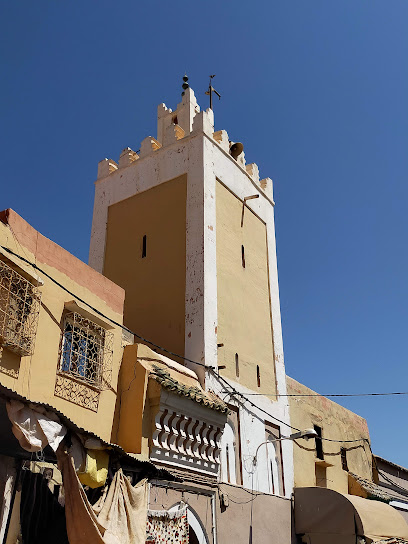
Hôtel Riad Taroudant
Discover the charm of traditional Moroccan hospitality at Hôtel Riad Taroudant, your serene getaway in the heart of Taroudant.
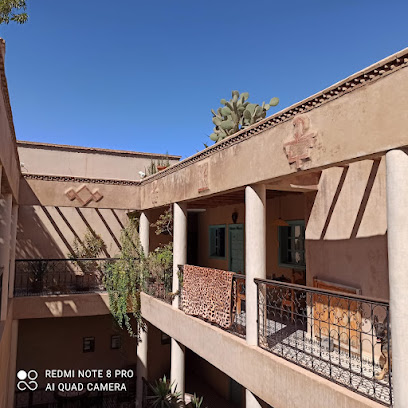
فندق قصر أومنصور
Discover the charm of Taroudant at Palais Oumensour, where luxury meets Moroccan tradition in a breathtaking setting.

Dar al Hossoun
Discover the beauty of Moroccan hospitality at Dar al Hossoun in Taroudant, where luxury meets tradition in a tranquil garden setting.
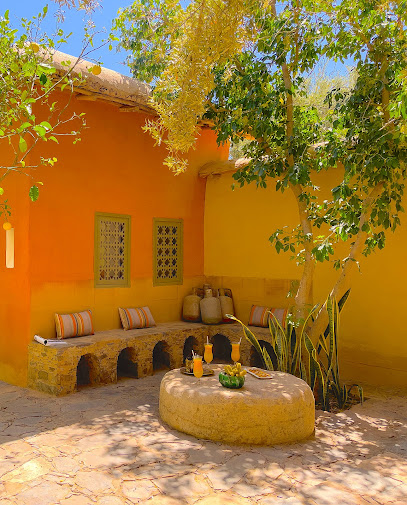
Maison d'hôtes oasis de tiout
Discover the tranquility and charm of Maison d'hôtes Oasis de Tiout, a unique guest house in the heart of Morocco's stunning landscapes.
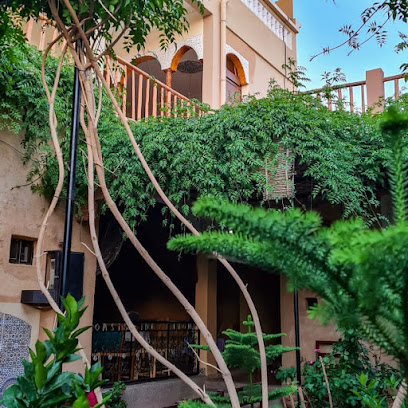
Le Moulin de Taroudant
Discover the charm of Moroccan hospitality at Le Moulin de Taroudant, your serene oasis in the heart of Taroudant's vibrant culture.
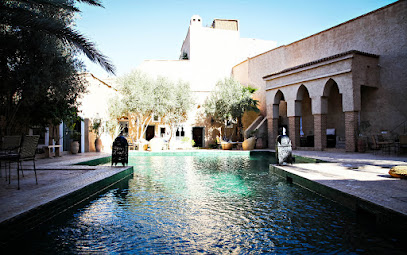
Domaine Villa Talaa
Discover tranquility and luxury at Domaine Villa Talaa, a premier hotel nestled in the stunning landscapes of Douar Talaa, Morocco.
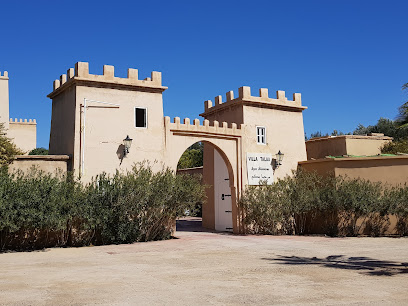
Café-Restaurant Bab El Kasbah
Experience the essence of Moroccan cuisine at Café-Restaurant Bab El Kasbah in Taroudant, where every meal is a celebration of local flavors.
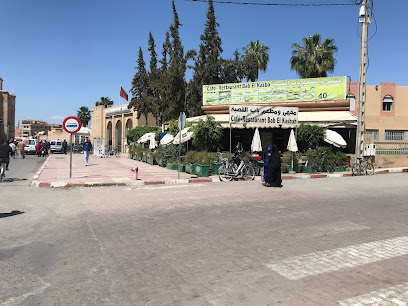
Dar Randigaba
Experience authentic Moroccan hospitality at Dar Randigaba, your serene retreat in the heart of Taroudant, rich in culture and charm.

Bab Ouled Bounouna
Explore Bab Ouled Bounouna in Taroudant, a historic gateway showcasing Moroccan architecture and rich cultural heritage.
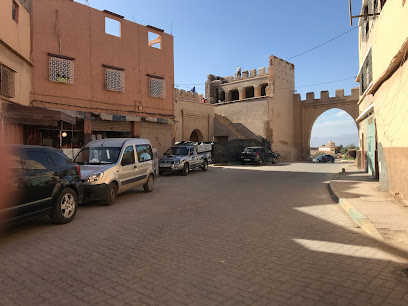
Bab El Kasbah.
Discover the enchanting views and rich culture at Bab El Kasbah in Taroudant, Morocco, a must-visit observation deck for every traveler.
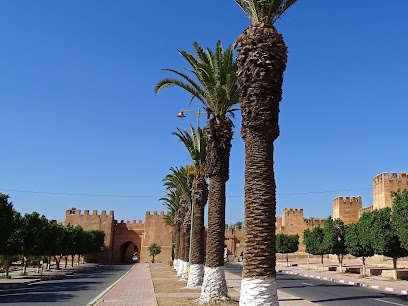
Unmissable attractions to see
20 August Place
Explore the vibrant heart of Taroudant at 20 August Place, where local culture, stunning architecture, and lively markets come together.
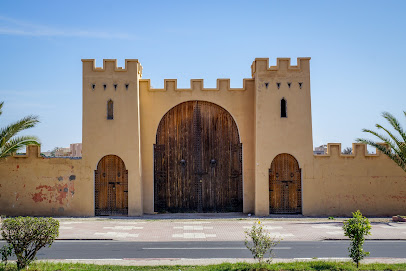
Palais Claudio Bravo
Discover the artistic heart of Morocco at Palais Claudio Bravo, where art and hospitality converge in a stunning setting.
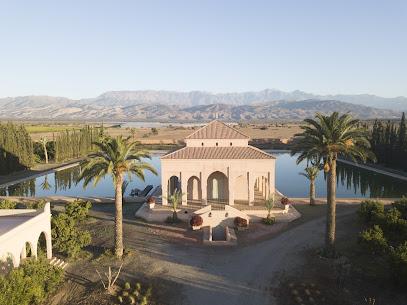
Bab Tarɣunt
Explore the breathtaking architecture and rich history of Bab Tarɣunt, a historical gem in Taroudant, Morocco, steeped in culture and charm.
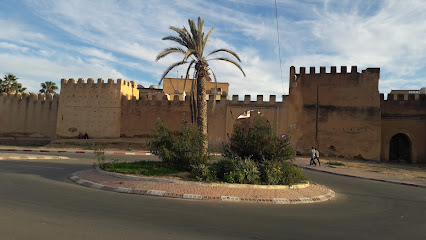
Dar al-Dabbagh
Explore the vibrant world of Moroccan leather craftsmanship at Dar al-Dabbagh in Taroudant, a must-visit for culture enthusiasts and souvenir hunters.
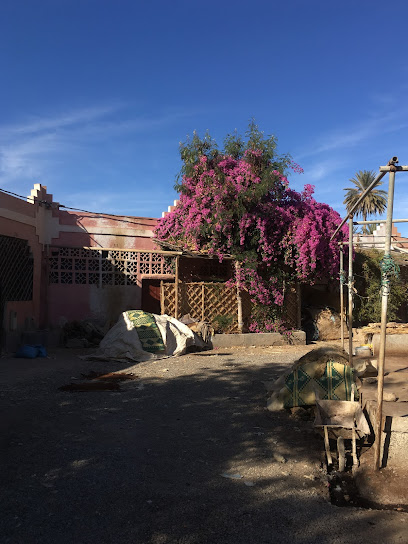
Musée Plein Air Claudio Bravo
Discover the beauty of art and nature at Musée Plein Air Claudio Bravo in Taroudant, a unique open-air museum showcasing the works of Claudio Bravo.
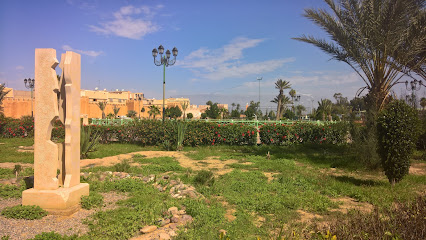
Thami bike tours
Discover the beauty and adventure of Taroudant with Thami Bike Tours, where stunning landscapes meet rich cultural experiences.
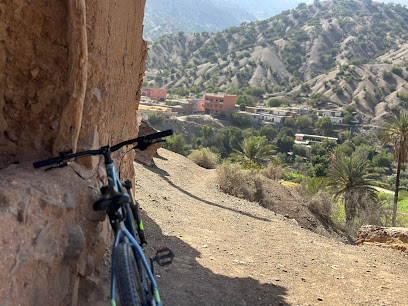
Architect mustapha khazaz
Experience the thrill of adventure at Architect Mustapha Khazaz Amusement Park in Taroudant, where joy awaits at every turn.
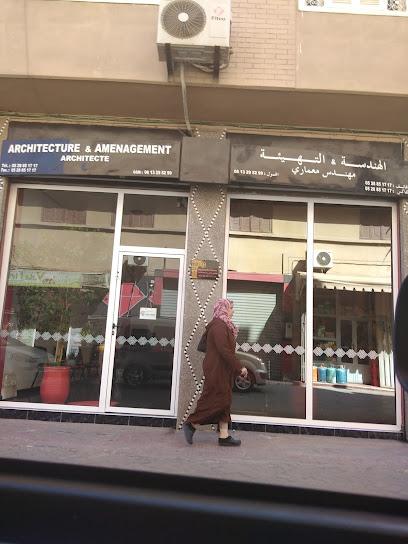
تورتاتين
Explore the rich culture and stunning landscapes of Tourtatine, a gem in Taroudant, Morocco, perfect for adventurous travelers and culture enthusiasts alike.

تيغوناتين
Discover Tignitine in Taroudant, a vibrant Moroccan tourist attraction rich in culture, history, and breathtaking landscapes, perfect for every traveler.

Essential places to dine
Complexe El Kasbah
Experience authentic Moroccan cuisine at Complexe El Kasbah – where every meal tells a story through rich flavors and local ingredients.
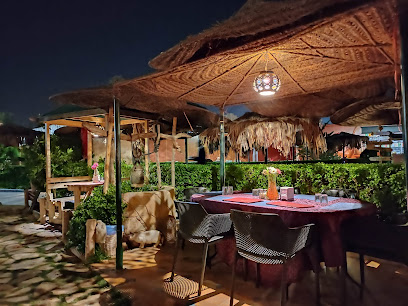
مقهى ومطعم جنان السوسية
Discover authentic Moroccan flavors at جنان السوسية Café & Restaurant in Taroudant - a culinary gem for every traveler.
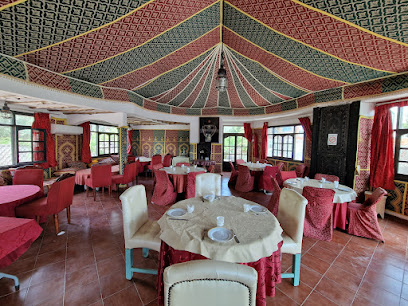
Dar Zitoune
Discover Dar Zitoune in Taroudant – A delightful blend of Moroccan cuisine and hospitality awaits you at this charming restaurant-hotel.

Café et Restaurant Attadamoune
Discover the authentic flavors of Morocco at Café et Restaurant Attadamoune in Taroudant – where culinary tradition meets warm hospitality.
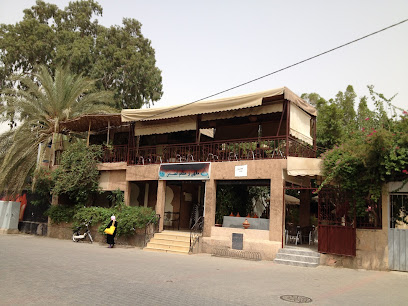
Café Coin d’Or
Discover authentic Moroccan flavors at Café Coin d’Or in Taroudant - your perfect stop for affordable dining in a cozy setting.
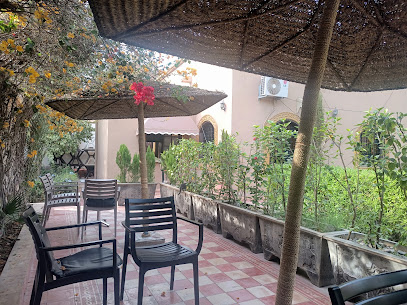
Imim Jus & Snack
Discover authentic Moroccan cuisine at Imim Jus & Snack in Taroudant – where every meal is a flavorful journey through local traditions.
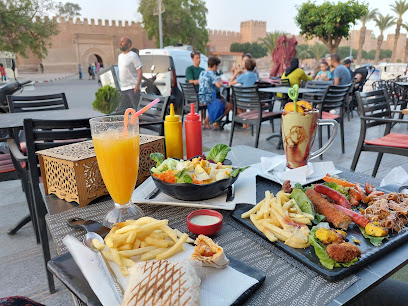
Royal Snack
Discover authentic Moroccan flavors at Royal Snack - your go-to restaurant in Taroudant for delicious meals and local charm.
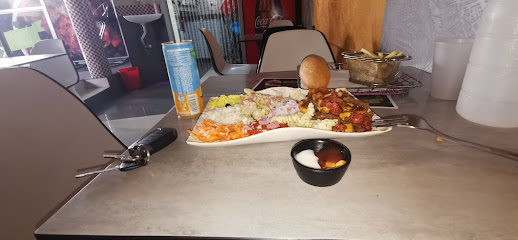
Achkid café
Experience authentic Moroccan cuisine and refreshing coffee at Achkid Café in Taroudant - your serene retreat amidst vibrant culture.
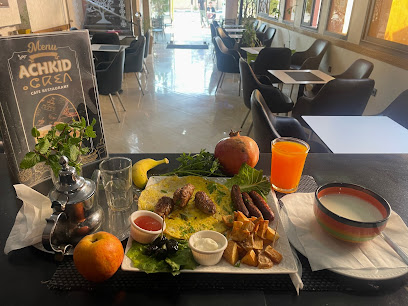
Chouwaya Tinzert
Experience authentic Moroccan cuisine at Chouwaya Tinzert in Taroudant – where tradition meets taste in every dish.
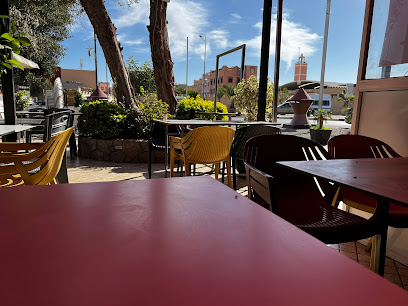
Pizzeria Gourmandise
Experience authentic Italian flavors at Pizzeria Gourmandise in Taroudant - where every dish tells a delicious story.
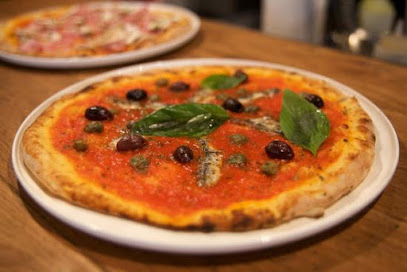
Complex Noblesse
Explore the flavors of Morocco at Complex Noblesse - where delicious pizza meets local charm in Taroudant.
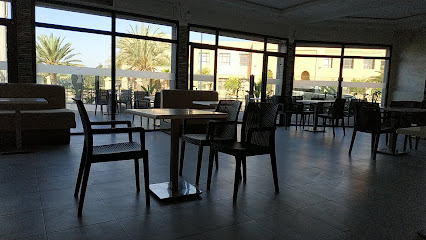
Café Restaurant El Khair
Discover authentic Moroccan flavors at Café Restaurant El Khair in Taroudant, where generous hospitality meets delicious traditional cuisine.
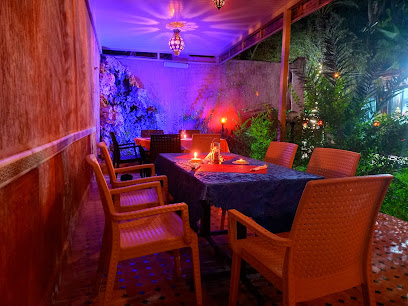
Taroudant's Gardens
Discover gourmet dining at Taroudant's Gardens – where haute French cuisine meets tranquil Moroccan landscapes in an unforgettable culinary journey.
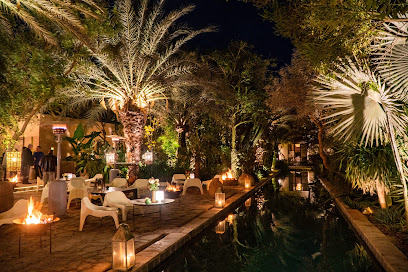
Snack Havana
Experience authentic Moroccan cuisine at Snack Havana in Taroudant, where local flavors meet warm hospitality.
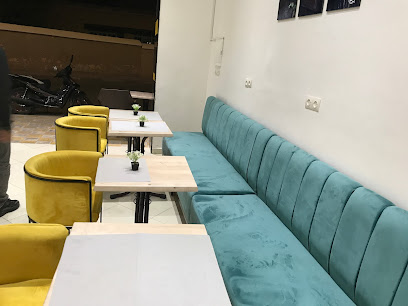
Café Espace Lastah
Discover authentic Moroccan cuisine at Café Espace Lastah in Taroudant – where tradition meets flavor in every dish.
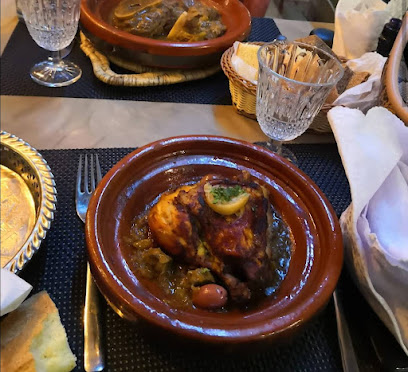
Markets, malls and hidden boutiques
Aladdin Treasure
Discover the vibrant shopping experience at Aladdin Treasure in Taroudant, where local culture meets modern retail in a stunning setting.
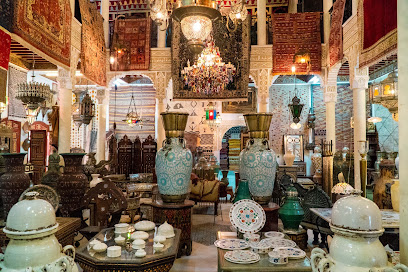
Pâtisserie Ettais
Experience the best of local pastries at Pâtisserie Ettais, where delightful treats and charming ambiance await every visitor.
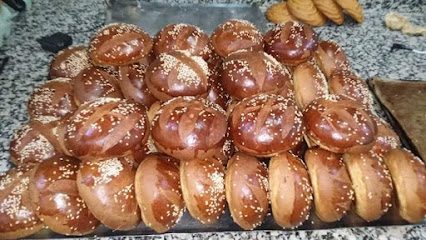
مخبزة الوداد
Explore the authentic flavors of Morocco at مخبزة الوداد, Taroudant's beloved bakery known for its exquisite pastries and warm hospitality.
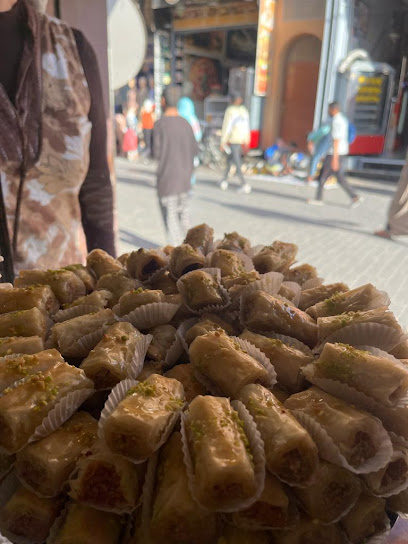
TRD Gaming
Explore TRD Gaming in Taroudant for an unmatched selection of video games, consoles, and a vibrant gaming community experience.
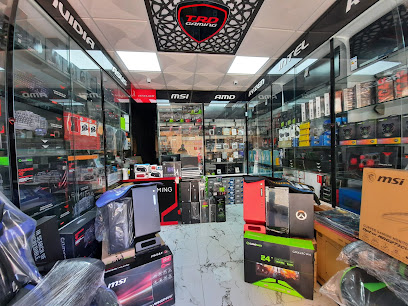
Amanies | Handmade Jewelry
Explore Amanies in Taroudant for unique handmade jewelry that embodies Moroccan craftsmanship and tradition.
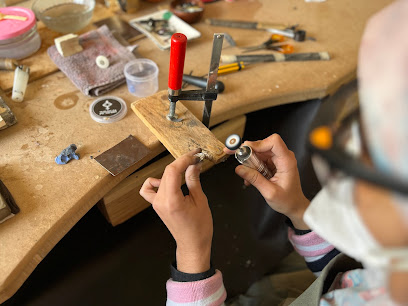
Market 36
Discover the heart of Taroudant at Market 36, a vibrant supermarket offering fresh produce, local delicacies, and a taste of Moroccan culture.
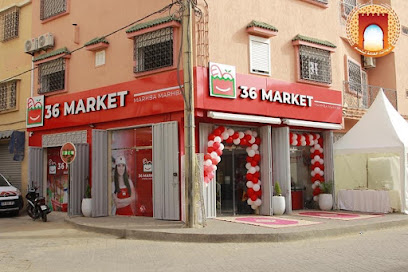
Accessoires Taroudant
Explore the rich craftsmanship of Taroudant at Accessoires Taroudant - a unique auto machine shop with handcrafted treasures.
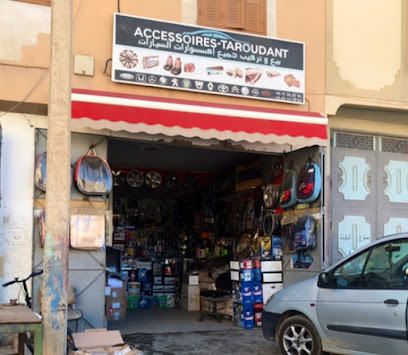
Patisserie Eddayab
Discover the sweet side of Taroudant at Patisserie Eddayab, your go-to bakery for authentic Moroccan pastries and delightful treats.
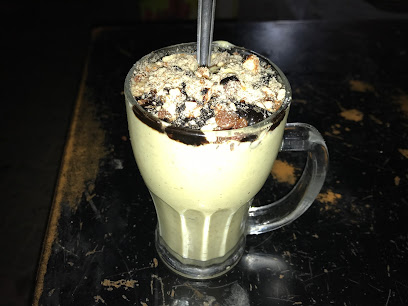
Rabiaa Market
Explore the vibrant Rabiaa Market in Taroudant for an authentic taste of Moroccan culture and cuisine.
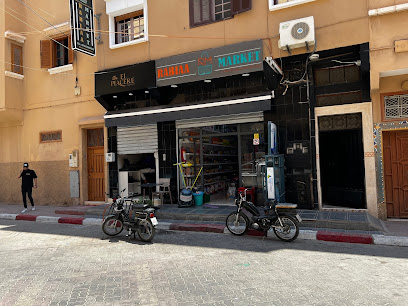
Roudana Targanet
Explore Roudana Targanet, the ultimate shopping mall in Taroudant, blending local charm with modern retail experiences for every traveler.
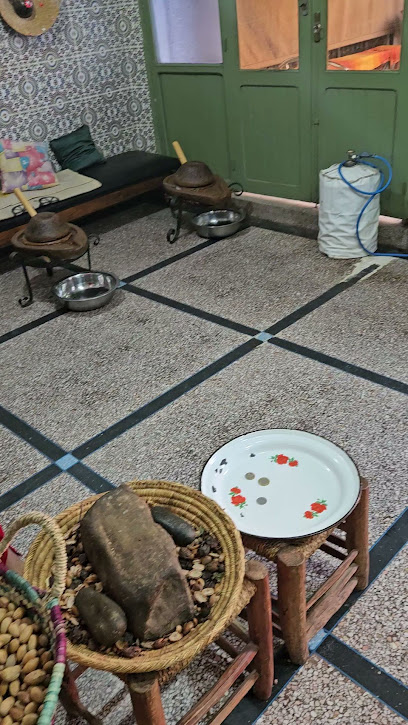
Chez l'Antiquaire Abdellatif Labchara
Explore the rich heritage of Morocco at Chez l'Antiquaire Abdellatif Labchara, an enchanting antique store in Taroudant offering unique treasures.
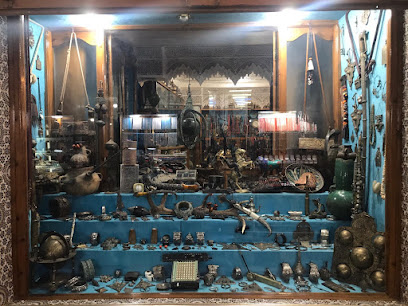
Pâtisserie Itri
Discover the delightful flavors of Morocco at Pâtisserie Itri, where every pastry tells a story of tradition and sweetness in Taroudant.
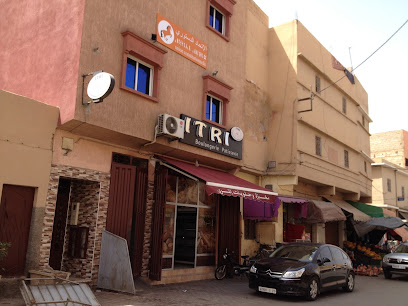
Le Choix
Explore Le Choix: A stylish men's clothing destination in the heart of Taroudant, blending tradition with contemporary fashion.
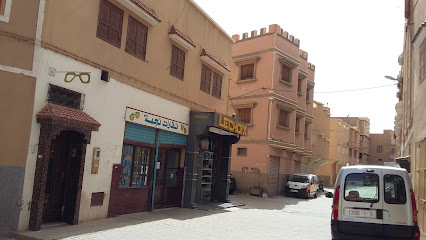
MAHRAJ STORE
Explore Mahraj Store in Taroudant for authentic Moroccan goods and a unique shopping experience that celebrates local culture.

Toubkal Medionics
Discover Toubkal Medionics in Taroudant - your go-to destination for health and beauty, featuring local products and expert advice for a rejuvenating experience.
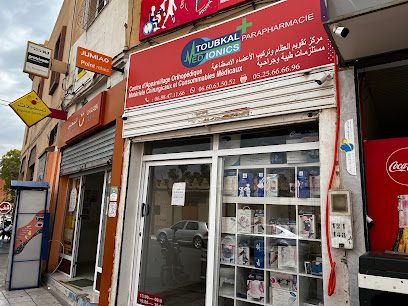
Essential bars & hidden hideouts
Complexe El Kasbah
Experience the vibrant culinary scene of Taroudant at Complexe El Kasbah, where diverse flavors and warm hospitality await.
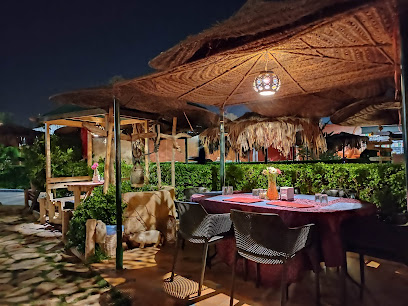
مقهى ومطعم جنان السوسية
Discover the authentic tastes of Morocco at Café and Restaurant Jnan Al-Sousia, a cozy eatery in Taroudant offering traditional dishes and warm hospitality.
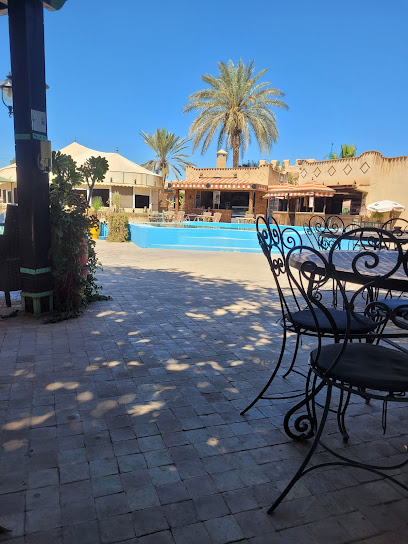
Dar Zitoune
Experience the charm of Moroccan hospitality at Dar Zitoune, a serene hotel and restaurant oasis in the heart of Taroudant.

Hôtel Riad Taroudant
Discover the charm of Taroudant at Hôtel Riad Taroudant – a haven of Moroccan culture, stunning architecture, and warm hospitality.
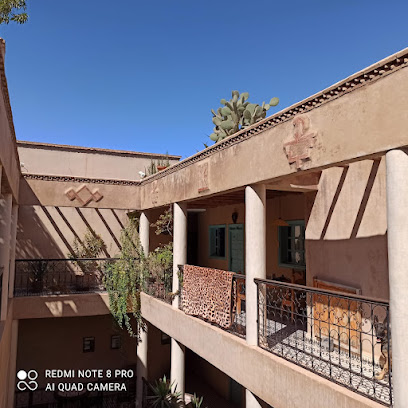
Complexe Maher Piscine Lastah
Experience the rich flavors of Moroccan cuisine at Complexe Maher Piscine Lastah in Taroudant, where every meal is a celebration of local culinary traditions.
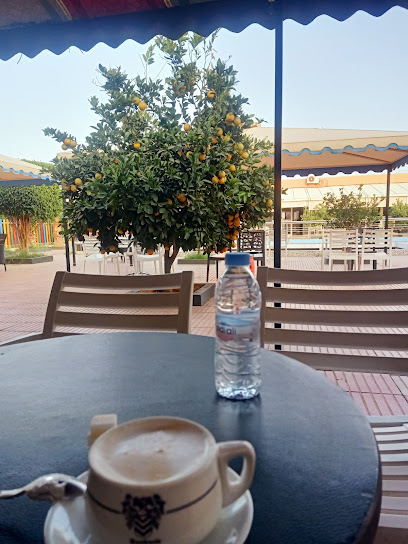
Café Coin d’Or
Discover the flavors of Morocco at Café Coin d’Or, a cozy restaurant in Taroudant serving authentic dishes amidst a warm and welcoming atmosphere.
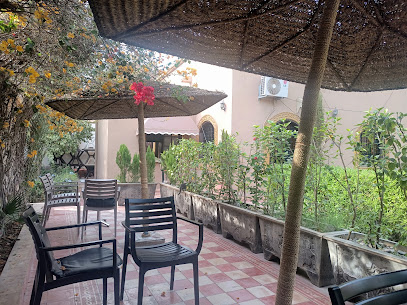
Le Moulin de Taroudant
Discover the charm of Moroccan hospitality at Le Moulin de Taroudant, your serene retreat in the heart of Taroudant.
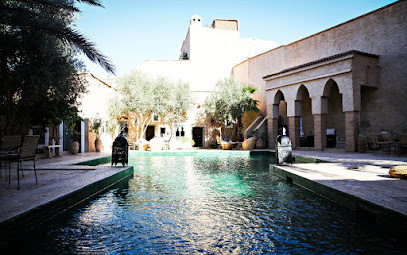
Riad Maryam
Experience the authentic charm of Taroudant at Riad Maryam, a serene extended stay hotel blending Moroccan hospitality with modern comforts.

Café-Restaurant Bab El Kasbah
Experience authentic Moroccan flavors at Café-Restaurant Bab El Kasbah in Taroudant, a delightful café with a warm ambiance and delicious dishes.
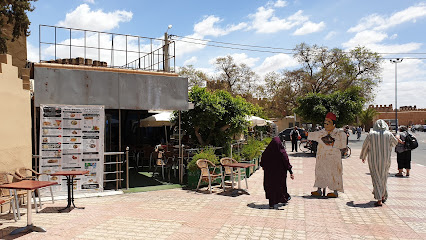
Chouwaya Tinzert
Experience the essence of Moroccan cuisine at Chouwaya Tinzert, where authentic flavors and vibrant culture come together in Taroudant.
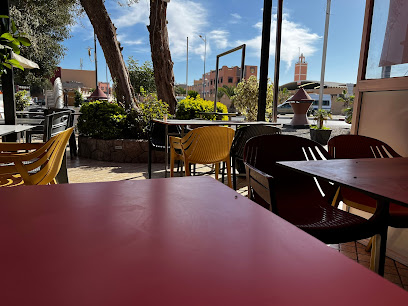
Complex Noblesse
Discover the delightful fusion of local and international cuisine at Complex Noblesse, a culinary gem in the heart of Taroudant.
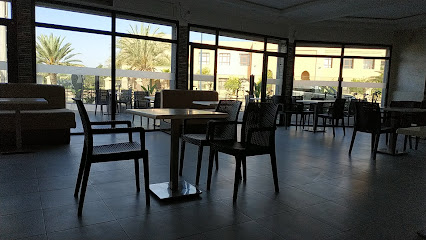
Taroudant's Gardens
Discover the culinary treasures of Taroudant's Gardens, a serene escape featuring exquisite haute French cuisine surrounded by lush gardens.
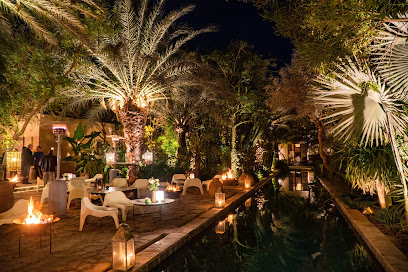
Ferme Joachim
Experience the authentic taste of Morocco at Ferme Joachim in Taroudant, where culinary traditions meet warm hospitality.
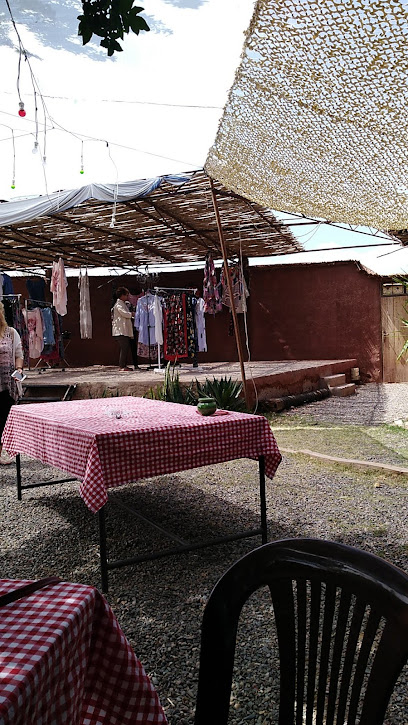
Snack Bronx
Discover the authentic flavors of Moroccan cuisine at Snack Bronx, a vibrant restaurant in the heart of Taroudant, blending tradition with a modern dining experience.
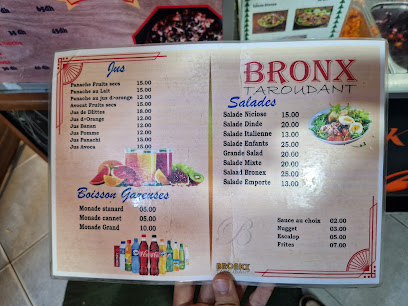
Care Club
Experience the rich flavors of Moroccan cuisine at Care Club in Taroudant, where every dish tells a story of tradition and taste.
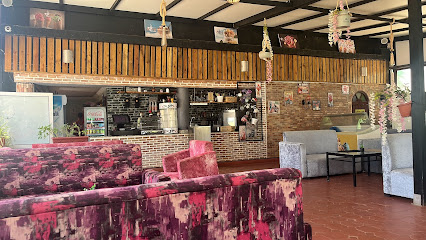
Travel experiences inspired by this city
Explore more travel diariesLocal Phrases
-
- Helloسلام
[salaam] - Goodbyeوداعا
[wadaan] - Yesنعم
[naam] - Noلا
[laa] - Please/You're welcomeمن فضلك
[min fadlik] - Thank youشكرا
[shukran] - Excuse me/Sorryعذرا
[aadhara] - How are you?كيف حالك؟
[kayfa haluk?] - Fine. And you?بخير. وأنت؟
[bkheer. wa ant?] - Do you speak English?هل تتحدث الإنجليزية؟
[hal tatahadath al'injlizia?] - I don't understandلا أفهم
[la afham]
- Helloسلام
-
- I'd like to see the menu, pleaseأريد أن أرى القائمة، من فضلك
[urid an ara alqa'imah, min fadlik] - I don't eat meatأنا لا آكل اللحم
[ana la aakul allahm] - Cheers!في صحتك!
[fi sahtak!] - I would like to pay, pleaseأود أن أدفع، من فضلك
[awad an adfa, min fadlik]
- I'd like to see the menu, pleaseأريد أن أرى القائمة، من فضلك
-
- Help!النجدة!
[alnajdah!] - Go away!انصرف!
[ansarif!] - Call the Police!اتصل بالشرطة!
[itasil bialshurtah!] - Call a doctor!اتصل بالطبيب!
[itasil bialtabib!] - I'm lostلقد ضللت الطريق
[laqad dalalt altariq] - I'm illأنا مريض
[ana mareed]
- Help!النجدة!
-
- I'd like to buy...أريد أن أشتري...
[urid an ashtari...] - I'm just lookingأنا فقط أتفرج
[ana faqat atfarij] - How much is it?بكم هذا؟
[bkam hatha?] - That's too expensiveهذا غالي جدا
[hatha ghali jiddan] - Can you lower the price?هل يمكنك خفض السعر؟
[hal yumkinuk khafd als'ar?]
- I'd like to buy...أريد أن أشتري...
-
- What time is it?كم الساعة؟
[kam alsaaah?] - It's one o'clockالساعة الواحدة
[alsaaah alwahidah] - Half past (10)الساعة والنصف
[alsaaah walnusf] - Morningالصباح
[alsaabah] - Afternoonالمساء
[almasaa] - Eveningالمساء
[almasaa] - Yesterdayأمس
[ams] - Todayاليوم
[alyawm] - Tomorrowغدا
[ghadan] - 1واحد
[wahid] - 2اثنين
[ithnayn] - 3ثلاثة
[thalatha] - 4أربعة
[arbaa] - 5خمسة
[khamsa] - 6ستة
[sitta] - 7سبعة
[sabaa] - 8ثمانية
[thamania] - 9تسعة
[tisaa] - 10عشرة
[ashara]
- What time is it?كم الساعة؟
-
- Where's a/the...?أين...
[ayn...] - What's the address?ما هو العنوان؟
[ma hu al'eanwan?] - Can you show me (on the map)?هل يمكنك أن تريني (على الخريطة)؟
[hal yumkinuk an tureeni (ala alkharitah)?] - When's the next (bus)?متى يأتي الحافلة التالية؟
[mata yaati alhafilat altaliat?] - A ticket (to ....)تذكرة (إلى ...)
[tadhkirah (ila ...)]
- Where's a/the...?أين...
History of Taroudant
-
Taroudant, often referred to as the 'Grandmother of Marrakech', boasts a rich history that dates back to the 11th century. Originally established as a Berber settlement, it became an important trading post due to its strategic location in the fertile Souss Valley. The city's early prosperity was fueled by the trans-Saharan trade routes, which facilitated the exchange of gold, salt, and other valuable goods.
-
In the 11th and 12th centuries, Taroudant came under the influence of two significant Berber dynasties, the Almoravids and the Almohads. The Almoravids, known for their military prowess and piety, fortified the city and expanded its influence. The Almohads, who succeeded the Almoravids, further enhanced the city's prominence by establishing it as a center of learning and culture. The presence of these dynasties left a lasting architectural and cultural legacy in Taroudant.
-
The 16th century marked a golden age for Taroudant under the rule of the Saadian dynasty. Sultan Mohammed ash-Sheikh made Taroudant his capital before moving it to Marrakech. During this period, the city flourished as a political, economic, and cultural hub. The Saadians constructed impressive buildings, including the iconic city walls and the Kasbah, which still stand today as testaments to their architectural prowess and the city's historical significance.
-
Following the Saadian period, Taroudant experienced a period of turmoil and decline. The arrival of the Alaouite dynasty in the 17th century saw the city lose its status as a capital. Additionally, the constant revolts and internal strife weakened the city's economic stability. Despite these challenges, Taroudant remained an important regional center, known for its resilient local population and vibrant markets.
-
With the establishment of the French Protectorate in Morocco in 1912, Taroudant underwent significant changes. The French influence led to the modernization of infrastructure and the introduction of new agricultural techniques, benefiting the local economy. After Morocco gained independence in 1956, Taroudant continued to evolve, balancing modern advancements with the preservation of its rich historical and cultural heritage. Today, it stands as a living testament to Morocco's diverse history, attracting visitors with its well-preserved architecture and bustling souks.
Taroudant Essentials
-
Taroudant is located in the Souss Valley in southern Morocco. The nearest international airport is Al Massira Airport in Agadir, approximately 65 kilometers away. From Agadir, you can take a taxi or a bus to Taroudant. The journey typically takes around 1 to 1.5 hours. Alternatively, you can rent a car at the airport for a more flexible travel experience.
-
Taroudant is a compact city, and many of its attractions are within walking distance. For longer trips, local taxis are readily available and relatively inexpensive. Public buses operate within the city and connect to nearby towns. Renting a bicycle or a scooter can also be a convenient and enjoyable way to explore the city and its surroundings.
-
The official currency in Morocco is the Moroccan Dirham (MAD). Credit cards are accepted in some hotels, restaurants, and shops, but it is advisable to carry cash, especially in smaller establishments and local markets. ATMs are available in Taroudant, but it is wise to withdraw sufficient cash before heading to rural areas.
-
Taroudant is generally a safe destination for tourists. However, like any travel destination, it is advisable to take standard precautions. Avoid walking alone at night in unfamiliar areas and keep an eye on your belongings in crowded places. There are no specific high-crime areas targeting tourists, but it is always best to stay vigilant and aware of your surroundings.
-
In case of emergency, dial 19 for police assistance and 15 for medical emergencies. The local police station and medical facilities are available in Taroudant. It is recommended to have travel insurance that covers medical emergencies. For minor health issues, there are pharmacies in the city where you can purchase over-the-counter medications.
-
Fashion: Do dress modestly, especially when visiting religious sites. Avoid wearing revealing clothing. Religion: Do respect local customs and traditions. Always remove your shoes before entering a mosque. Public Transport: Do be respectful and give up your seat to elderly passengers. Don't eat or drink on public transport. Greetings: Do greet people with a handshake or the traditional Moroccan greeting of touching cheeks. Eating & Drinking: Do try local delicacies and accept food offerings graciously. Don't refuse hospitality, as it is considered impolite.
-
To experience Taroudant like a local, visit the souks (markets) where you can buy fresh produce, spices, and traditional Moroccan goods. Engage with locals, as they are often friendly and willing to share stories about the city's history and culture. Don't miss visiting the ancient city walls and exploring the narrow streets of the medina. For a unique experience, take a horse-drawn carriage ride around the city.
Trending Landmark in Taroudant
Nearby Cities to Taroudant
-
Things To Do in Agadir
-
Things To Do in Essaouira
-
Things To Do in Marrakech
-
Things To Do in Casablanca
-
Things To Do in Meknes
-
Things To Do in Fes
-
Things To Do in Asilah
-
Things To Do in Chefchaouen
-
Things To Do in Tangier
-
Things To Do in Tetouan
-
Things To Do in Europa Point
-
Things To Do in Gorham's Cave Complex
-
Things To Do in St. Michael's Cave
-
Things To Do in Alameda Botanic Gardens
-
Things To Do in Queensway Quay Marina

















